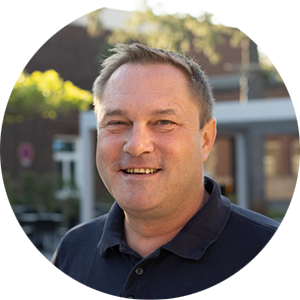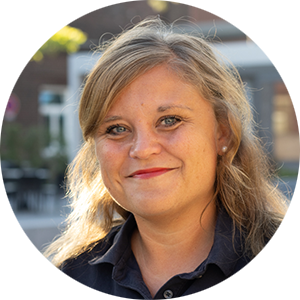Jörg M. Heilingbrunner, Managing Director at Scheidt & Bachmann Fuel Retail Solutions GmbH, started in his presentation with a general overview of where the industry stands today and what is expected of petrol stations in the future. In his presentation, he clearly showed that technological solutions and especially the retail sector are developing rapidly today.
Markus Laenzlinger, CEO of migrolino AG, was able to elaborate on this in his presentation. Always with its finger on the pulse and with innovative solutions, migrolino responds to customer needs and adapts its offer according to the respective situation. From low-price offers to premium concepts and 24/7 shopping, the recipe for success is made up of many aspects.
Will blockchain technologies also play a role in this in the future? We will see. The presentation by Nicolas Kozakiewicz, Chief Innovation Officer at Worldline, was very interesting. What is blockchain actually about and how do cryptocurrencies work? His presentation provided information about the answers and possible applications at the petrol station.
Digital payment, ordering food and having it delivered to your door - that is the business with which Lieferando has been successful, and not only during the pandemic. Jonas Grebing, Key Account Manager Grocery/Convenience at Lieferando, shed light on the recipe for success. The online grocery trade is growing rapidly and Lieferando is already cooperating not only with gastronomy businesses, but is also expanding in the retail sector in particular. Successful projects have already been implemented with Shell and Spar, for example. This shows that petrol stations with delivery services, pre-orders and pick-up services can also successfully develop their services and thus their business.
Mark Wohltmann, Director NACS Global, explained in his presentation what else will be part of the future success factors of a petrol station. The evolution of the petrol station over the years shows that today the focus is no longer on fuel sales, but on food and FMCG ("Fast Moving Consumer Goods") offerings. Refuelling is becoming a secondary matter. Future footfall generators must be characterised by hospitality and a positive experience, making the petrol station - across generations - a place-to-be.
Not only the petrol station and the mobility sector are facing change. AUTO BILD magazine has also had to reinvent itself repeatedly over the years, said Christian Wolf, Managing Director of AUTO BILD & COMPUTER BILD, in his presentation. The influencing factors can also be transferred to the petrol station industry and essentially make up 5 factors: Scalability, Demand, Convenience, Coopetition and Customer Interaction. One has to adapt the respective offer to the location and the clientele.
David Aumüller, Business Development Manager at H2 MOBILITY Germany, had some arguments in favour of hydrogen as the fuel of the future. Hydrogen and batteries are the only solutions to really reduce emissions in the field of mobility and transport to zero. From production to transport and positive contribution to CO2 reduction, we were able to learn a lot about hydrogen. And during the breaks, the technology-enthusiastic participants were able see and learn out of first-hand about the hydrogen car which David Aumüller arrived in.
Batteries are the alternative to hydrogen in the context of e-cars and Daniel Kunkel, CEO at ubitricity and General Manager, Retail Engineering Solutions at Shell, explained where to charge them. The demand for public charging points will increase significantly in the next few years. ubitricity offers the integration of charging points in public street lamps as an innovative solution. In this way, cities and municipalities can significantly increase the supply of charging options by using the existing infrastructure, and for drivers of electric cars, finding a charging option is greatly simplified and even made possible in the vicinity of their home.
We were able to hear first-hand from Ilse Caers, Digital Manager Retail at Q8 (Kuwait Petroleum North-West Europe) what the petrol station of the future will look like from a petrol station operator's point of view. The golden wisdom of "It’s all about location" coupled with a positive personalised customer experience and brand experience are the key factors to success. Q8 has also realised: The offer must fit the location and the clientele. If you use modern technology and cooperate with innovative service providers, you can significantly improve the customer's stay at the station and create customer loyalty.
Finally, we could listen to a joint presentation by Bernhard Böden, founder and managing partner of Power Innovation & Stephan Löffler, Head of Product Management & Marketing, Scheidt & Bachmann Fuel Retail Solutions. The problem of creating a fast-charging offer even in places where the existing infrastructure does not easily allow it is solved by Power Innovation's battery-buffered solution. The combination of energy storage and solar or wind energy even enables particularly efficient fast charging solutions. Using SIQMA Connect, charging points are connected to the Scheidt & Bachmann systems, creating a complete package for the expansion of filling stations by electric charging destinations.











